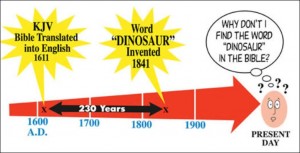The next question I’d like to address is, “Did Jesus descend into Hell between His death and resurrection?” First, you must notice that the statement “descended into Hell” was an addendum added to the Apostles Creed somewhere around the 4th Century AD. There has been much debate regarding it and  many believe the phrase should not have been added and would prefer to remove it. There is no true biblical support for the phrase. Paul says, in Ephesians 4:9 that Jesus “descended into the lower parts of the earth.” Many suggest, such as Kenneth Copeland, that this means that Jesus went to hell for three days to release the spirits of Old Testament saints.
many believe the phrase should not have been added and would prefer to remove it. There is no true biblical support for the phrase. Paul says, in Ephesians 4:9 that Jesus “descended into the lower parts of the earth.” Many suggest, such as Kenneth Copeland, that this means that Jesus went to hell for three days to release the spirits of Old Testament saints.
I believe that when the Old Testament saints departed this earth, they went directly to heaven. God took Enoch to be with himself (Genesis 5:24, Hebrews 11:5). Elijah was caught up into “heaven” when he departed (2 Kings 2:1). Abraham’s bosom in Luke 16:23 is a description of heaven. Geisler says, “When Old Testament Saints appear before the cross, they appear from heaven, as Moses and Elijah did on the Mount of Transfiguration.”
The question is what happened to Jesus while he was in the grave for three days. The phrase “descended into the lower parts of the earth” is referring to Christ’s body being buried. He was crucified, He died, and He was buried like all humans. He took that death experience as His own. The Phrase simply means caves, enclosures or graves. Psalm 139:15, uses the phrase “lowest parts of the earth” to refer to a woman’s womb. It might mean “from the enclosure of the womb before birth (as Jesus took upon himself with Mary) to the enclosure of the tomb that he took for us after His death on the cross. We all come from the womb of a woman and go to the tomb at our death. Further, Philippians 2:10 tells us that Hell is not in the “lowest parts of the earth” rather it is “under the earth.”
Jesus’ body, like ours, went into the grave. His Spirit on the other hand went to heaven. He said to the thief on the cross, “this day you will be with me in paradise.” He also said to His Father in Heaven, “Into your hands I commend my spirit.” The Spirits of all believers go to be with the Lord immediately at death. There is no purgatory or temporary place for it. Hallelujah!
Chuck
“Absent from the body is to be present with the Lord.” 2 Corinthians 5:8







